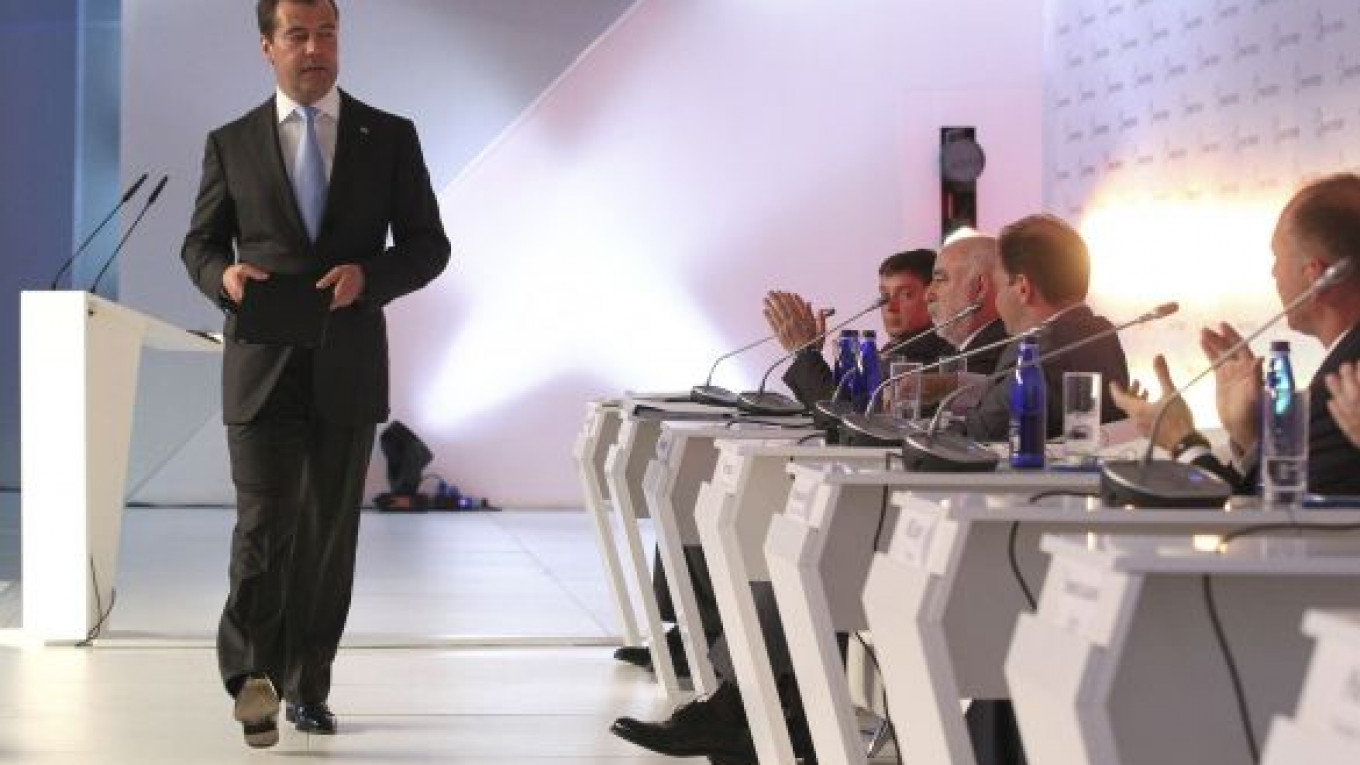Prime Minister Dmitry Medvedev on Thursday had to field a question about the country’s cumbersome customs clearance from German industrialist Dieter Siempelkamp.
The chairman of Siempelkamp Group, a manufacturer of wood processing and other industrial machines, complained while Medvedev attended a high-tech-industry forum in Yekaterinburg that delays hurt his business of exporting — and installing — equipment.
“Sometimes we have to halt installation because we wait for parts that sit at customs for several weeks,” he said, according to a transcript of the meeting on the Cabinet website. “The procedure that we have to follow at customs is very complicated, and it is growing more complicated.”
In response, Medvedev acknowledged — as has been customary for government officials speaking about government institutions — that the Federal Customs Service remained corrupt and ineffective despite attempts to change it for the better.
As a solution, he said, the government had to find a better balance between the agency’s duties of filling the budget and regulating foreign trade.
“The customs service must do both, but in what proportion?” he said at the Innoprom forum. “What is more important for the state: an open road for business, new jobs, new production units, and supply of the needed parts, or the fiscal goal?”
Continuing on the customs subject, Dietrich Moeller, president of Siemens in Russia and Central Asia, said customs duties make it cheaper to export finished products to Russia, such as energy turbines and trains, than to assemble them locally from imported components — and create jobs by doing so.
On the sidelines of the forum, Canadian aerospace and rail equipment manufacturer Bombardier signed a cooperation agreement with Uralvagonzavod.
A Message from The Moscow Times:
Dear readers,
We are facing unprecedented challenges. Russia's Prosecutor General's Office has designated The Moscow Times as an "undesirable" organization, criminalizing our work and putting our staff at risk of prosecution. This follows our earlier unjust labeling as a "foreign agent."
These actions are direct attempts to silence independent journalism in Russia. The authorities claim our work "discredits the decisions of the Russian leadership." We see things differently: we strive to provide accurate, unbiased reporting on Russia.
We, the journalists of The Moscow Times, refuse to be silenced. But to continue our work, we need your help.
Your support, no matter how small, makes a world of difference. If you can, please support us monthly starting from just $2. It's quick to set up, and every contribution makes a significant impact.
By supporting The Moscow Times, you're defending open, independent journalism in the face of repression. Thank you for standing with us.
Remind me later.






